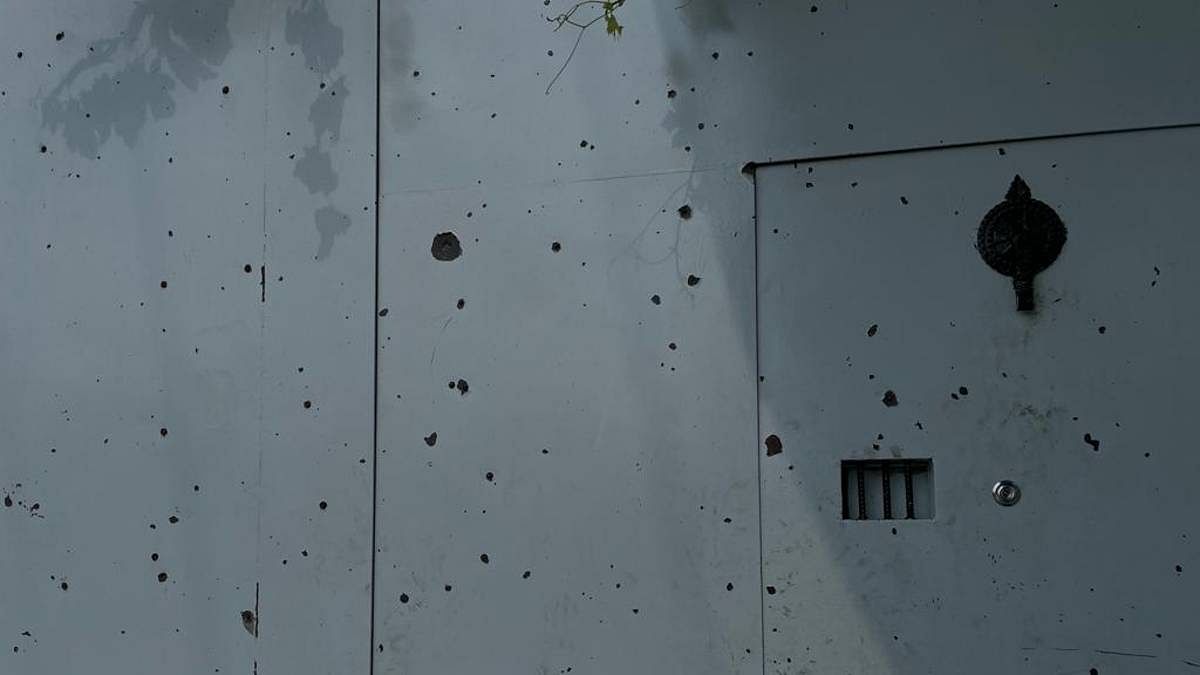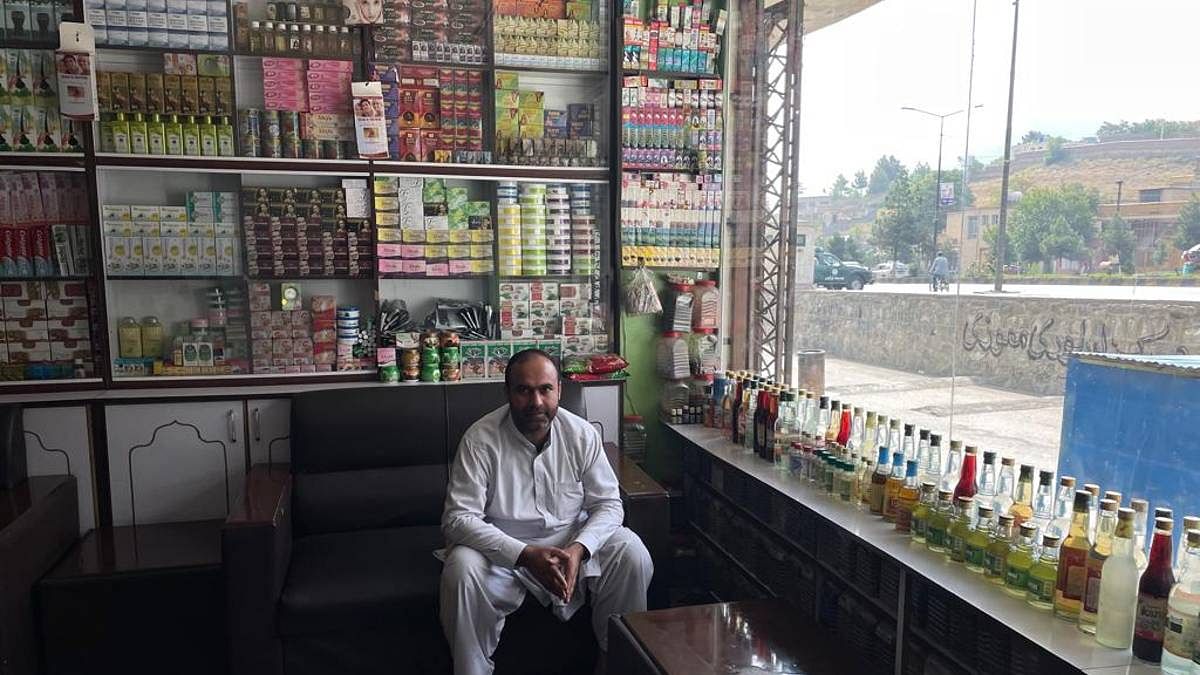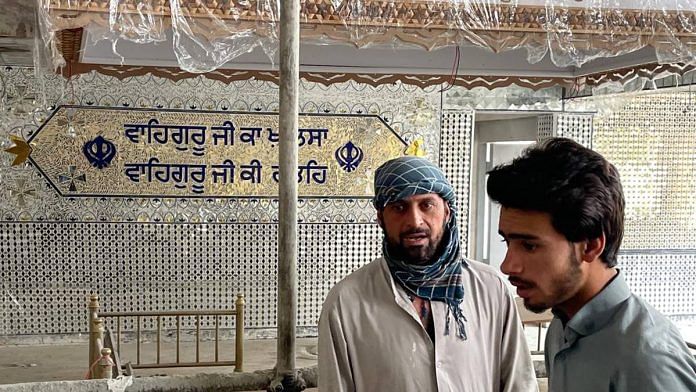Kabul: In a wealthy quarter of Kabul known as Kart-e-Parwan, Afghanistan’s tiny Sikh community has been in a huddle.
A second gurudwara attack within two years by the Islamic State (IS) has put the fear of god into what once was a prosperous group, controlling regional trade and being a key part of professional occupations like medicine and engineering.
While the most recent attack came on 18 June at the Gurdwara Dashmesh Pita Guru Gobind Singh Karte Parwan in Kart-e-Parwan, killing two Sikhs, a previous attack in 2020, at another gurdwara in Kabul, had killed 25.
The Taliban government in Afghanistan, which celebrated a year of return to power on 15 August, has not just ordered a 24-hour security detail to be placed outside the Dashmesh Pita Guru Gobind Singh gurudwara since the June attack, but promised a sum of 40 lakh Afghanis (nearly Rs 40 lakh) for the reconstruction of the gurudwara.
“The Taliban have been asking us, again and again, how can we help. Voh har tareekay se madad karna chahte hain (They want to help in every possible way). They want to help us in any way we want,” says community leader Ram Sharan, who was born in Afghanistan. Sharan admits that only 100-120 Sikhs and Hindus are left in the country today, but refuses to acknowledge that they may be nearing the end of a 200-year-old heritage.
Abdul Qahar Balkhi, the spokesperson of the ministry of foreign affairs of the Islamic Emirate of Afghanistan, echoes Ram Sharan.
In an exclusive interview with ThePrint in Kabul earlier, Balkhi had said, “Afghanistan is the shared home of all Afghans. We have minority groups here, including Hindus and Sikhs, they have a long history in Afghanistan. We have provided them with protection. We have returned them the properties that were usurped and taken by force by the previous administration in Jalalabad and elsewhere”.
Clearly, the Taliban government realises that if it can treat its tiny Sikh-Hindu community with both compassion and financial kindness, it would go a long way in glossing over its reputation for awful violence and the curtailment of human rights of its own citizens.
Moreover, if India is to be reassured into returning to Afghanistan — which would imply, not just formal recognition, but also completing unfinished projects left behind when the ancient regime’s leaders fled, besides starting new ones — then the treatment of its Sikhs and Hindus could become the first tools to help develop trust between Kabul and Delhi.

India does not recognise the Taliban interim government, or the Islamic Emirate of Afghanistan, but the embassy in Kabul — closed when the Taliban made a return to power in the the country — was reopened in June, when New Delhi deployed a “technical team” consisting of diplomats and others to the Afghan capital to “closely monitor and coordinate” the delivery of humanitarian assistance there.
There’s a third reason for the Taliban’s assurances of help and protection to the country’s Sikh community.
The Islamic Emirate knows that it cannot allow the Islamic State to challenge its control over Afghanistan, for which it has fought both foreign forces and fellow Afghans for the past 21 years. The Emirate believes that the question of “who is a better and purer Muslim” was settled on 15 August 2021, when it walked into Kabul without firing a shot, and former President Ashraf Ghani fled the country with a few key aides.
According to Balkhi, “ISIS has been engaged in violence against innocent people, but the government has been successful to a large extent in neutralising those groups and we will continue our efforts until they are completely eliminated from Afghanistan”.
He added: “The Islamic State, or Daesh, believe they are the only Muslims on the face of this planet. They excommunicate the majority of Muslims — the Sufis, other Muslims that aspire to different interpretations. The significant point is that they have no support inside Afghanistan”.
Also read: Why Taliban wants India in Kabul and New Delhi is upscaling mission
Living in fear
At the gurudwara in Kart-e-Parwan, Afghan workers have been working night and day since the June attack to return the structure to its original sanctity. Jalalabad’s green granite slabs are being stuck on some of the walls, white marble on others. The ceiling is being given a coat of paint.
On the periphery of the property, tall deodar trees stand as mute witnesses to the suicide attack by the Islamic State suicide squad, which came around 6.30 am on that fateful morning in June. The outer wall remains pockmarked with splinters that flew when the suicide-bomber rammed his truck into the gate of the gurudwara.
An awning of grapevines leading off from the entrance — now padlocked several times behind a thick steel door — impart an unusual character to this house of god. The ‘khanda’, the emblem of Sikh faith, stares back from the inner gate. The Guru Granth Sahib (the holy religious scripture of Sikhism, considered to be a living Guru by the Sikhs) itself is missing from the gurudwara building and has been kept in one of the houses of the pious laity, while the gurudwara is being reconstructed.
It will be returned to its rightful place when the gurudwara is made whole again — with more than a little help from the Taliban.

The impact of the attack was so hard that not only was the glass front of the Hakim Narinder Khalsa Folic Medicalist shop next door — which deals in Unani and Ayurvedic medicines — shattered, but the glass windows of houses of Sikhs as far as a couple of streets away rattled.
Surpal Singh’s huge house in Kart-e-Parwan was one such. A fortnight ago he dropped his young wife and four-year-old daughter (“the Guru gave her to us after seven years of marriage,” he told ThePrint) at Kabul airport to catch a flight to Delhi.
Surpal was born in Kabul, like his father before him. His wife is Afghan Sikh. The decision to return to India was a difficult one, but with the “situation, the haalaat, so bad,” he said, it was really a simple one to take.
Like Ram Sharan, Surpal Singh cannot bring himself to say that the days of the Sikh community in Afghanistan are numbered. But the roll call of attacks continues with dreadful regularity — 2018 in Jalalabad, 2020 in Shor Bazaar in Kabul in which 25 Sikhs were killed and 2022 in Kart-e-Parwan, in which two Sikhs lost their lives.
Luckily, that morning in June, there weren’t that many people around because the ardas, or morning prayer, was supposed to start at 7:10 am and the suicide bomber arrived at the gurudwara gates about 45 minutes before.
Days after the attack, a nervous community requested the Modi government for visas to come to India.
While some have already made the move since, more batches would leave in successive months.
The ones currently in Afghanistan didn’t really celebrate India’s 75th independence day Monday — India isn’t their country yet, even if it’s the only place in which they feel secure — or, like their fellow Afghan Muslims, did anything else special to commemorate the first anniversary of the Taliban’s return to power.
Caught in this pincer of fear and uncertainty, Afghanistan’s Sikhs have locked themselves in. They seem reassured by the new rulers in the place they have always called home, but they aren’t taking any bets yet. As for “home” on the other end of the recently revived Kabul-Delhi flight, it’s a thought worth holding on to.
(Edited by Poulomi Banerjee)
Also read: ‘What’s there to celebrate,’ Afghans ask as Taliban mark one year in power in Kabul



